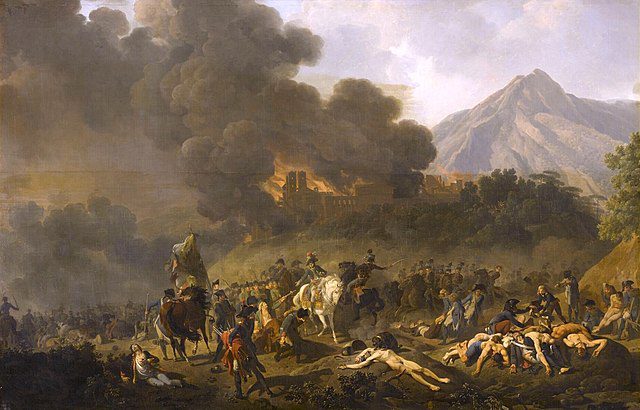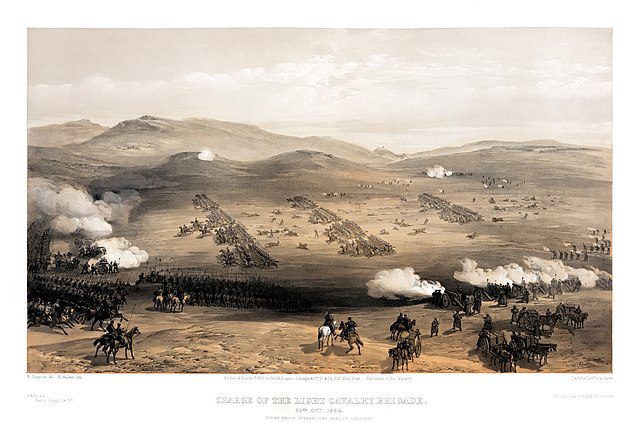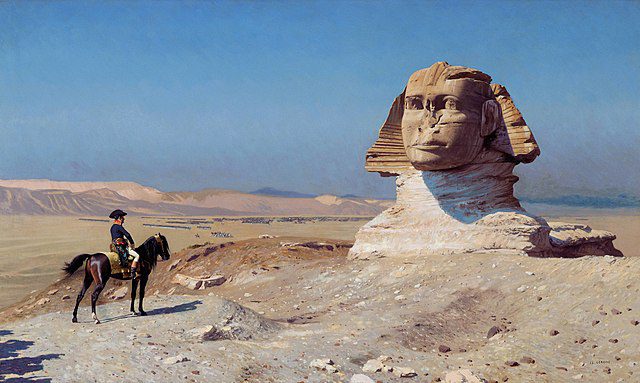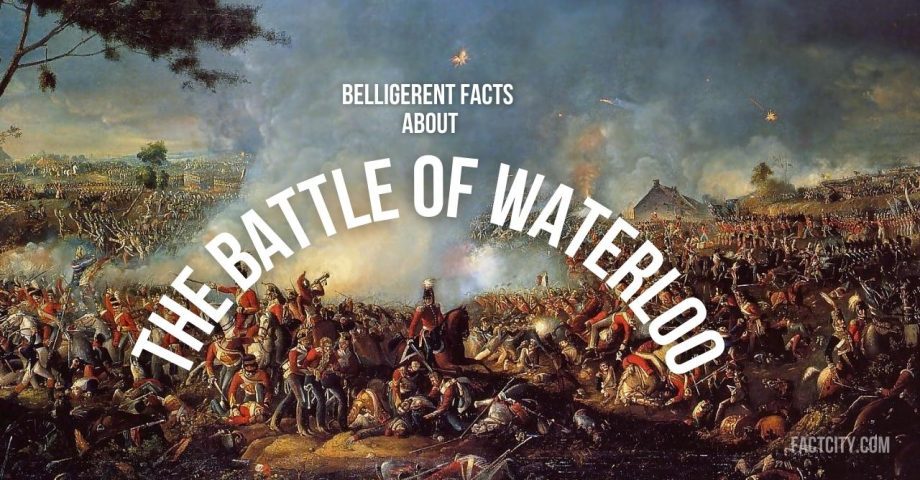The Battle of Waterloo is perhaps one of history’s most famous conflicts. Taking place in the early 19th century, it’s infamous for being one of Napoleon Bonaparte’s biggest defeats – and is known to many as La Belle Alliance. While many of us probably know the ABBA song better than the battle, it’s time to get down to some cold, hard, facts! Here are some fun facts about the Battle of Waterloo worth remembering.
1. When did the Battle of Waterloo take place?
The battle specifically took place on June 18, 1815, close to the town of Waterloo, in present-day Belgium. It was a decisive battle fought during the Napoleonic Wars, and has been depicted many times in paintings over the decades.
2. Who took part in the battle?
The battle involved a French army commanded by Napoleon Bonaparte, and on the other side, two combined forces of the Seventh Coalition. These included the British and Prussian armies.
3. It was the end of an era.
Many know the Battle of Waterloo as being the battle that defeated Napoleon! It also marked the end of his reign as the Emperor of the French. As you can imagine, it was a pivotal moment in European history.

4. It was a pivotal moment for the then-Duke of Wellington.
Another well-known figure to have taken part in the battle was the Duke of Wellington, Arthur Wellesley! He was an experienced British military commander, and he led the coalition forces.
5. Strategy, ultimately, won the battle.
Many commend the Duke’s strategy for helping the coalition win the battle. He adopted a defensive stance and positioned his troops along a ridge at Mont-Saint-Jean, near the village of Waterloo.
6. The outbreak of battle!
The battle began in the morning with a French attack on the British right flank, followed by intense fighting throughout the day. The British forces held their ground despite repeated French assaults.
7. The Prussians played a huge part.
However, it is important to remember that the Prussian army played an equally important role in the battle! In the afternoon, the Prussian army under the command of Field Marshal Gebhard Leberecht von Blücher arrived to reinforce the coalition forces. Their arrival tipped the balance in favour of the coalition.
8. The Charge of the Light Brigade!
One of the most famous moments from the battle was also a key turning point. The charge of the British heavy cavalry, famously known as the Charge of the Light Brigade, was led by Major General James Brudenell. The charge pushed back a French infantry attack but suffered heavy casualties.

9. Napoleon did surrender!
As mentioned above, Napoleon’s defeat at Waterloo effectively ended his rule and led to his second abdication on June 22, 1815. He exiled to Saint Helena in the South Atlantic, and he later died there in 1821.
10. Pax Britannica reigned… for a while.
The Battle of Waterloo led to a period of relative peace in Europe, known as the Pax Britannica, which remained until the outbreak of the Crimean War in 1853. It also contributed to the rise of Great Britain as a major global power and set the stage for the Congress of Vienna, where European powers redrew the political map of the continent.

FAQs about the Battle of Waterloo
How many soldiers died at the Battle of Waterloo?
It is estimated that about 50,000 men died or were wounded during the Battle of Waterloo. There were about 25,000 casualties for the French and about 23,000 for the Allied army.
Who was more successful, Wellington or Napoleon?
There is still great debate as to which man was a better leader! Napoleon won about 60 out of his 70 battles, so he was definitely a strong force to be reckoned with. However, Wellington never lost a battle. That being said, he fought far fewer than Napoleon. The jury’s out – who do you side with?
What do the French call the Battle of Waterloo?
The French have referred to the battle as the Battle of Mont-Saint-Jean. However, most people, even most French citizens today, know the battle mainly as the Battle of Waterloo.
Further reading:
https://facts.uk/tag/War
https://www.nam.ac.uk/explore/battle-waterloo
https://www.history.com/topics/european-history/battle-of-waterloo
Do you know any fun facts about the Battle of Waterloo? Share them in the comments below!










